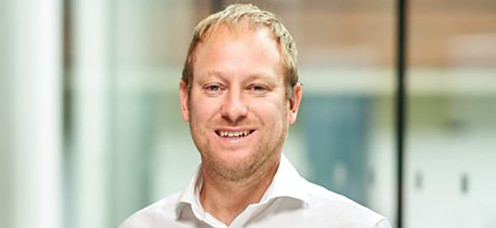
BHP welcomes new Professor of Regenerative Medicine
Professor Ivan Wall has been appointed as Professor of Regenerative Medicine with the Institute of Immunology and Immunotherapy at BHP founder-member the University of Birmingham.
Professor Wall joins us from Aston University and has a well-established relationship with the University of Birmingham as the Lead for the Centre for Advanced Therapies Manufacturing Training. His research group works on stem cells and extracellular vesicles, with emphasis on industrial translation and scale up production – his ambition is to see Birmingham become a hub manufacturing cell and gene therapies that local patients can benefit from.
To mark Professor Wall’s latest appointment with the University, the Institute of Immunology and Immunotherapy sat down with him to learn more about his background and expertise:
What research and industry work do you currently undertake?
My academic research spans stem cells, tissue engineering and bioprocessing. I am particularly interested in the role of mesenchymal stem cells in regenerative medicine, both via direct differentiation towards regenerative cell types but also via their secretion of paracrine signalling vehicles such as exosomes. Exosomes enable cells to communicate with each other and current research points to stem cell-secreted exosomes as important cues for regeneration of injured tissues. My research team has created novel cell lines, demonstrated scalable production and examined cell stimulation methods to enhance potency. Outside of academia I have co-founded two companies: FourPlus Immersive, which creates virtual reality training simulations for GMP cell and gene therapy manufacturing; and Quest Meat. Both companies are based in Birmingham.
What made you become interested in regenerative medicine?
I undertook a PhD in wound healing and my early research focussed on understanding why some wounds in aged or diabetic patients do not heal very well. This spurred an interest in how stem cells are the building blocks for tissue and organ formation, with the aim of understanding how stem cells might be used to drive regeneration of aged or injured tissues. In 2009 I became a lecturer at UCL, working in regenerative medicine bioprocessing, which enabled me to bring together my interest in working with stem cells to treat disease with industrialisation strategies to scale up production for clinical applications.
What is Quest Meat and how did you come about co-founding this organisation?
Quest Meat is a startup that is creating cultivated meat. I co-founded this company with Dr Petra Hanga (now UCL) and former board members of a UK regenerative medicine company and we are based here in Birmingham. We have been able to take our knowledge of scaling up stem cells for medicine and apply it to future meat production. We are doing this because global food production in its current form is not sustainable and, with a growing global population and climate change creating pressure on existing food systems, we need a radical new approach to food production. As a parent I want my children to eat nutritious food that has not been intensively farmed, used antibiotics that may cause health problems, or will accelerate environmental damage. As a scientist and CEO of Quest, I can work with a brilliant team to create a healthy and sustainable alternative.
What are the opportunities and challenges facing future cell and gene therapies?
Cell and gene therapies are transforming healthcare and we are now seeing some truly remarkable treatments emerging that are curing patients of rare and life-threatening diseases, including rare forms of cancer that have not responded to conventional treatments.
Even though these medicines are still in their early days, the rate of development of new treatments means they are becoming more and more prevalent in hospitals and so over time more patients will benefit from them. The main challenge is in being able to manufacture them consistently and affordably, especially as some manufacturing batches only treat a single patient. A second critical challenge is in training enough people to grow the workforce needed for this rapidly growing industry – there is a huge skills shortage. University of Birmingham is at the forefront of addressing these challenges, with the National Training Centre for Advanced Therapies Manufacturing and also excellent advanced therapy manufacturing cleanroom capabilities.
What key advice would you give to researchers considering scaling their research into industry?
Think about what manufacturing for your final product would look like early in the translation cycle. A lot of effort is required to manufacture medicines that will be administered to patients. For example, regulatory guidelines around good manufacturing practice (GMP) must be adhered to, to show that those manufacturing processes consistently deliver the required product quality. Everything from the cleanroom environment, manufacturing equipment, processes and personnel must be monitored and documented. Any changes to manufacturing later on will require re-validation which can cause significant delays to the product development cycle.